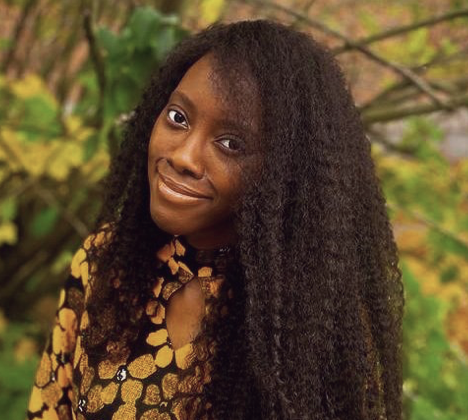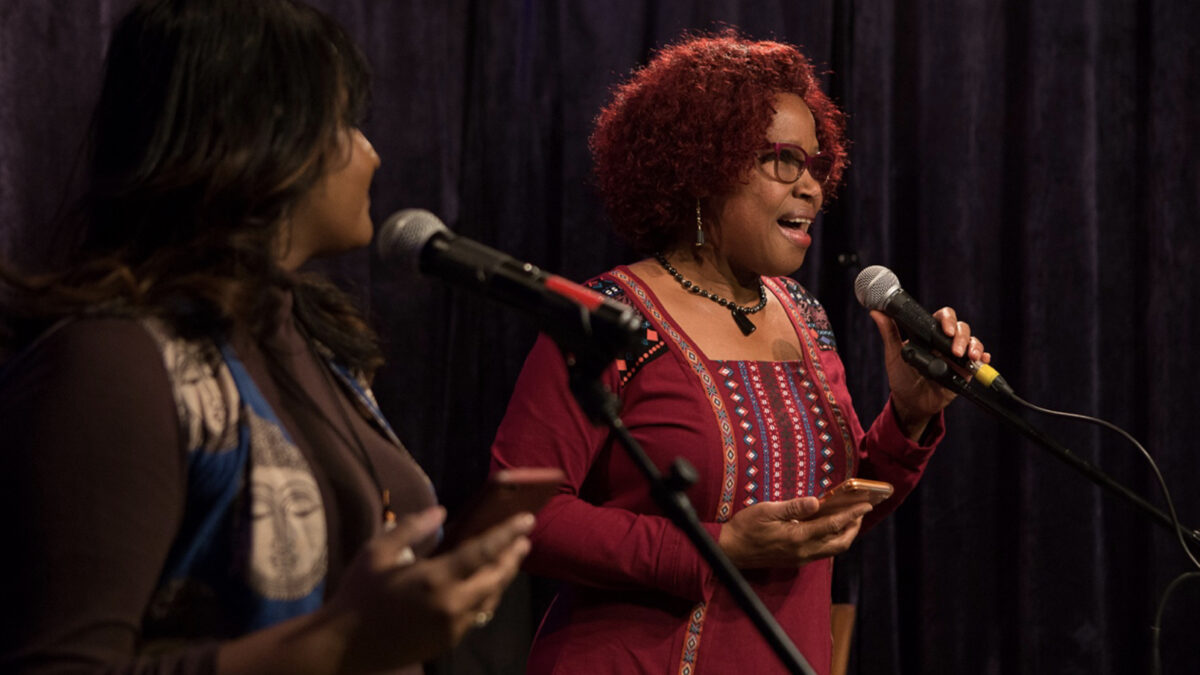Local artists will celebrate Black History Month in word and song at the SAW gallery Tuesday night.
The event featuring jazz singer/songwriter Antoine Collins and poets Yanaminah Thullah and Sarah Kabamba is part of the In Our Tongues Reading and Art Series. The series was co-founded by Shery Alexander Heinis and Mailyne K. Briggs in 2019 to amplify the voices of marginalized communities. In Our Tongues is an Ottawa-based arts advocacy group dedicated to creating spaces for BIPOC performers.
“They started this organization to help encourage and grow the capacity for BIPOC artists getting exposed and helping others get exposed to the art and history of all the artists,” said Saabiqa Chowdhury, secretary and marketing director for In Our Tongues.

Sarah Kabamba said the event will a good opportunity to interact with people and share ideas.
“I’m just looking forward to being in the atmosphere, being surrounded by like-minded people who just want to hear music and hear art and just to have good discussions about what Black history means for them, and their thoughts about the work,” Kabamba said.
The event will have also an open mic, giving up-and-coming BIPOC artists a stage.
I’m just looking forward to being in the atmosphere, being surrounded by like-minded people who just want to hear music and hear art and just to have good discussions about what Black history means for them.
—Sarah Kabama, poet
Thullah is a multidisciplinary creative and art curator who will perform spoken-word poetry.
Thullah has been writing her whole life and has been performing spoken word poems since high school. She describes her work as very personal, almost like a “diary entry.”
“It’s very informed by my life experiences, mental health, spirituality. I always have humour in there, lessons on love, life, everything I’ve learned,” said Thullah. I feel like when I’m sharing it’s my chance to give a piece of wisdom and exercise vulnerability with others.”

Thullah will offer several new pieces. She said she wants to test her own abilities and engage with her audience in new ways with her poems.
“They’re very informed by conversations around mental health — a sort of cathartic release of my stream of consciousness and things that have been weighing on me.”
Thullah said spoken-word poetry is important to Black History Month.
“I think we all need outlets of expression, and spoken word in particular is a form of expression that is originally Black, and by us, for us,” she said. “I think it’s a beautiful thing to have that, and to particularly have that space for Black artists in the city during the month where we’re being celebrated.”
Kabamba said her work focuses on her family history and experiences as a Black woman.
“A lot of my work has been inspired by my history and my background,” she said. “My parents are from Congo, and, growing up, my dad, especially, would tell stories about my family and our history. I grew up in a house where we were always telling stories and that really influenced me.”

Kabamba describes her writing style as free-flowing.
“I’m not someone who is too caught up in form. I think to me it’s just about the words and the message you’re trying to get across. I just want my poems to feel like a story, but in a shorter form than reading a novel.”
Alongside her older works, Kabamba will also share more personal poetry about her experiences as a Black woman.
Chowdhury said In Our Tongues creates a space for everyone to share the beauty of art and community.
“There’s such a down-to-earth, wholesomeness that exists when all the audience members can interact and talk to these performers,” Chowdhury said. “We’ll have people of all backgrounds attend. It creates such a sense of community care I didn’t realize I missed.”




